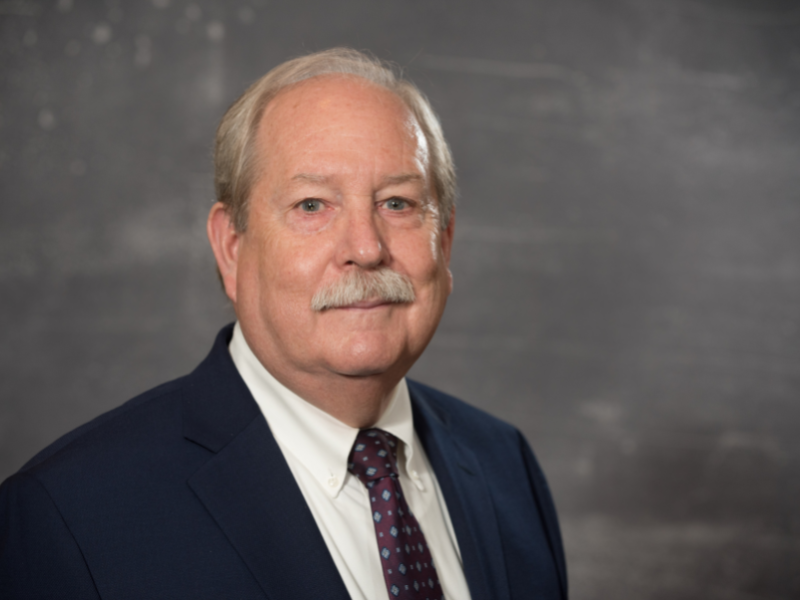Home / After a long and distinguished career, Tulane Law Professor Mark Wessman to retire
After a long and distinguished career, Tulane Law Professor Mark Wessman to retire
January 22, 2024 8:00 AM
|

So many things have changed in the 36-plus years Professor Mark Wessman has taught at Tulane Law School, and then not so much.
Sure, the law has changed and gone through many revisions. Now, there is cryptocurrency to explore and NFTs. But some things are constant, he said. The students are still of the highest caliber, curious, and eager to learn and be better.
“No matter how long you do this, you always learn from the students,” said Wessman, who since 1987 has taught law at Tulane – mostly transactional law, contracts and bankruptcy. “And every year a student comes along and makes you see things in a different way. So for me, teaching makes you be in a constant state of reinvention.”
Wessman retires this year, becoming Professor Emeritus. The law school will celebrate his career on Monday, Jan. 22 at 5 p.m. in Room 110, followed by a reception in the Marian Mayer Berkett Multipurpose Room.
Wessman landed in New Orleans in 1987, after six years of law practice in Atlanta, and just a few years after leaving his hometown of Sioux Falls, S.D. He had received his Bachelor of Arts degree from St. Olaf College, his Master of Arts in Philosophy and Theology from Oxford University and his law degree from Harvard University.
The day that Hoffman Fuller, a former Tulane Law professor who at the time was spearheading the law school’s recruiting, called to ask Wessman to come to Tulane for an interview, “I was honored. Then, I hung up and asked my wife, ‘Where is Tulane?’”
They learned quickly enough as they toured the colorful and eccentric city – at the time mired in an economic downturn after the bust of the oil industry. Wessman and his wife, Julie Jackson, were impressed, but more importantly, over time, the city wrapped itself around their hearts.
“It is a place like no other, with its own distinct culture. Over the course of time, we just grew to love it here,” Wessman said of New Orleans, so much so that he and his family have no plans to move away after his retirement.
Julie Jackson would become Assistant Dean for Pro Bono Programs at Tulane, a founder of the law school’s ground-breaking and first-in-the-nation pro bono program, which required public service to the community as a prerequisite for graduation. Jackson ran the program for 28 years, among others, before retiring in 2017. The law school each year honors students showing an exceptional commitment to public service with the Jackson-Ryan Pro Bono Advocate Award. The award is named in honor of Jackson and Eileen Ryan, Program Coordinator, who administered the from 1987 until 2016.
For Wessman, Tulane Law was as distinctive as New Orleans. It is the kind of place with a rich legal background – one older than the United States itself – with a distinct civil law tradition, as well as a comparative focus. “It has an international flair and that was attractive,” said Wessman.
The law school, too benefitted from Wessman's knowledge, and steady guidance, said Interim Dean Sally Richardson.
"We are so thankful for all of Mark’s service to Tulane. He has taught tens of thousands law students about contracts, bankruptcy, secured transactions, and the like. He has co-authored a textbook with our friend and colleague Paul Barron on secured transactions and law review articles on contract law," Richardson said."He has been a steady hand on the faculty and a beloved professor, winning the Felix Frankfurter Award for Distinguished Teaching multiple times.
"It truly has been an honor to count Mark as a colleague, mentor, and friend." -- Interim Dean Sally Richardson
During his years at Tulane Law, Wessman joined efforts to teach summer programs abroad and in the 1980s, few law schools offered such a curriculum.
“I have taught so many of the students in those programs,” said Wessman. “And because of that I have had the opportunity to be exposed to foreign academics and met faculty from all over the world. Most law schools aren’t like that.”
Closer to home, he had the best colleagues, he said. His friendship and collaboration with Professor Paul Barron (and later adding Rafael Pardo) led to the two writing a coursebook, “Secured Transactions: Problems and Materials,” which is in its fourth edition.
He wrote numerous legal articles during his time at Tulane and mentored many students. In 1991 and 1999, the graduating classes chose him to receive the Felix Frankfurter Award for Distinguished Teaching, the law school’s most prestigious teaching honor.
As he takes on the mantle of Professor Emeritus at Tulane, Wessman said he will miss his colleagues the most, “we’ve had a good crew for a long time.”